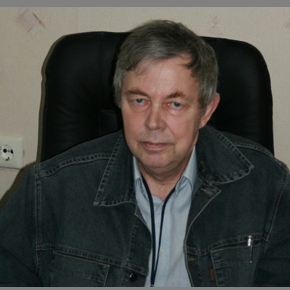Russia on U.S. missile plan: No Poland deployment
RIA Novosti , PUBLISHED May 21, 2011
On Friday, May 20, Gen. Andrei Tretyak, head of the Armed Forces General Staff Main Operations Directorate (GOU), confirmed Russia's position that the deployment of U.S. missile defense system poses a real threat to Russia's nuclear deterrent.
The general said the threat to Russia's nuclear deterrent will emerge after 2015, when the United States modifies its SM-3 anti-missiles and brings its seaborne missile defense group to 40 ships with 400 interceptor missiles.
Tretyak put special emphasis on the threat posed by missile defense elements on Polish territory.
While U.S. President Barack Obama's refusal to deploy interceptors in Poland surely stung, Warsaw would be glad to reopen this topic. There can be no doubt about this. For example, Gen. Stanislaw Koziej, head of the Polish National Security Bureau, urged the United States and NATO to return from Asia to Europe. In his opinion, the deeper NATO gets mired in Afghanistan, the greater the degradation of its main function - to protect its member countries against direct threats under Article 5 of the NATO Charter (mutual assistance in case of an attack on one allied member). Poland has made it clear at all levels that it still considers Russia the main threat.
Poland's main political forces and the majority of the media were critical of Obama's decision in September 2009 to cancel the deployment of American interceptors on its territory. Poland never tires of reminding the United States that 2% of the Wojsko Polskie (Polish Army) units are fighting in Afghanistan and that Poland spends up to 20% of its defense budget to support the mission. The Polish troop withdrawal is scheduled for 2012, and the Poles are fearing that an ungrateful America will not keep its promise to modernize the system aimed at protecting Poland against potential "aggression from the East," despite Poland's successful completion of its mission in Afghanistan.
The Russian Foreign Ministry has already expressed regret over the plans to deploy U.S. missile defense hardware in Romania, claiming that the United States is acting as if the Russian-American reset never happened and that the Russian and U.S. presidents did not recognize the interdependence between offensive and defensive missiles at their meeting in Prague.
Moscow is bound to react to Poland's participation in missile defense as well. At a news conference in Skolkovo, President Dmitry Medvedev said the further development of American missile defense will compel Russia to develop its own offensive missile potential. Let's recall that it was Poland, Romania and the Baltic countries that refused Medvedev's proposal at the Russia-NATO summit in Lisbon to establish sectoral European missile defense. They declared that NATO will not outsource security, i.e. Russia should not be in charge of the security of Poland, Latvia and Estonia.
Yevgeny Buzhinsky, a member of the International Expert Group of the Moscow-based PIR Center, said at a news conference at RIA Novosti: "Deployment of American missile defense elements in Romania and the Balkans can be justified in a way by the need to counter threats emanating from the Middle East. We merely demand guarantees that this system will not be directed against Russia's nuclear capabilities. But when it comes to Poland or the Czech Republic, the situation is very different - we are ready to prove with figures at hand that this system will enable the United States to intercept missiles from western Russia."
Buzhinsky, who until recently headed the Defense Ministry's International Legal Department, noted that the timing for the U.S.-Romanian initiative was wrong: while Russia and NATO will soon gather for their council meeting, there is a lot of talk about the end of the Russian-American reset.
"Events could unfold in several ways," said Vladimir Orlov, head of the PIR Center. "The best possible scenario would be to establish a European missile defense system together with Russia. On the other hand, Russia and the United States could renounce a joint system but continue cooperation on this issue with due account of Russian interests. And under the third and the worst case scenario, Russia quarrels with the United States and its allies and new missile defense systems are built without Russian participation."
Topics: Russia , USA , Poland
Other news:
Russia ready to finance Egypt first nuclear plant
Russia confirmed its participation in a tender to build Egypt's first nuclear power plant and said it was willing to help finance the project.
ARMZ acquires Australian uranium producer in $1.2 bln deal
ARMZ will pay eight Australian dollars per share, which represents a 15.5 percent premium on the average market price for 20 trading days.
Russia to start building Turkish NPP in 2013
Russia will start building Turkey's first NPP estimated at $20 billion in 2013, Russian ambassador to Ankara Vladimir Ivanovsky said.



